My Pride In Sport: John Dickinson-Lilley
The former European champion blind ski racer discusses what Pride means to him in the second of our #AuthenticMe Pride Month Q&As…
By Jon Holmes
We’re only a week into June 2020 and already this Pride Month has felt like a period of great significance and reflection.
We began our new #MyPrideInSport series by hearing from Michael Gunning who told us of the importance of visible representation in sport; and where that is lacking, the need to invite people into open conversations so that this can be discussed constructively. Michael’s enthusiasm for sharing his story sets a great example, but it’s on those of us working in media to provide a platform for his story and others to find a wider audience.
As Michael himself wrote on #BlackOutTuesday: “I’m grieving for those whose voices aren’t being heard.” They are legion. Sports Media LGBT+‘s stated aim is to amplify the voices of LGBT+ people and allies in sport. We’re going to be more proactive in doing that for under-represented groups, and these Pride Q&As are a demonstration of our commitment.
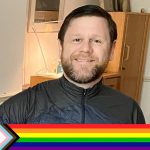
For this second instalment, it’s one of Michael’s fellow Stonewall Sport Champions and another of our #AuthenticMe speakers who is answering the questions. Before his retirement from competitive sport in 2017, John Dickinson-Lilley was Britain’s foremost blind ski racer, ranked in the world’s top 10 having been both European champion and a two-time British champion.
At our event last October, John spoke compellingly about being a para athlete who is also gay, and how the culture of elite British para snowsport wasn’t always welcoming for LGBT+ people like him. He’s now the comms director for Goldsmiths, University of London, and continues to be a passionate advocate for inclusion.
As with Michael, we invited John to talk about his personal connection with Pride, where sport has a role to play, and more…
JH: Hi John, it’s great to catch up with you again and talk about Pride Month. Let’s start with the connection between that and sport – what’s your take?
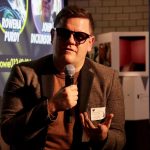
JDL: I think one of the most important things for any athlete is being your authentic self. For me, that means being out. I’d always encourage national governing bodies and individuals in the sporting community to take the time to participate in Pride and to acknowledge it, because we need vocal, visible allies to make these environments more welcoming.
I’m always struck by the stat that at the last Summer Olympics, if every out LGBT+ athlete was brought together, then that alone as a team would land in the top 20 of the medals table. That’s an incredible number – and of course, there are loads of athletes who are not out. It’s not about putting pressure on them, it’s about creating an environment so that when the time is right for them, they can come out if they want to. Pride is really an opportunity for sports to show what being an ally means.
Since our event in October, you have been named as one of the first 11 Stonewall Sport Champions, a visible ambassador for the Rainbow Laces message. What has that meant to you?
It’s been exciting. You always know that there are other LGBT+ athletes out there but reaching each other can be quite difficult. For example, when I was competing, I was rarely in the same time zone for very long! I’m registered blind and I’m a British para-athlete, so I’ve always been able to access that community. However, being LGBT+ is another community that I’m part of, another source of support and encouragement in which I can talk and relate to other people. Young LGBT+ people often catch me on Twitter or drop me a message on Facebook, so it’s heartening to be able to share some of my experiences with them.
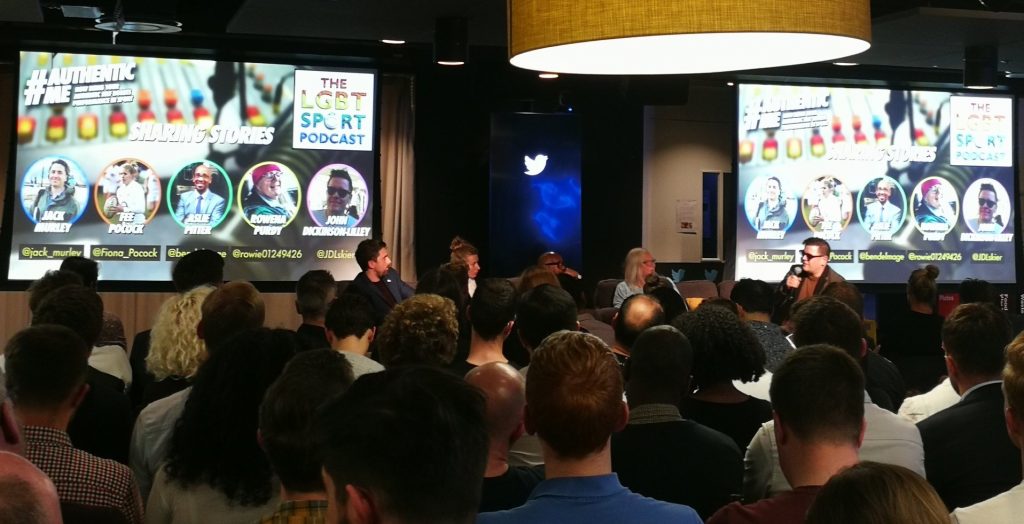
You mentioned national governing bodies getting involved in Pride. Has GB Snowsport connected with you about that?
I’m sad to say GB Snowsport haven’t been in touch with me yet on this, so that’s a conversation I would love to have. I’ve nudged them on social media a few times, and when British Athletics announced their LGBT+ network a couple of months ago, I pointed at GB Snowsport to say, ‘come on guys’. So there’s some more work to do there.
Perhaps with Gus Kenworthy having now switched to Team GB, that might also help to spark dialogue…
Gus is an absolute hero. I’m sure he’d be the first person to turn around and say, ‘let’s do more’. There’s so much homegrown talent in the UK and I think if young LGBT+ people can see an open national governing body – not just athletes being open, but the governing body demonstrating they are open as an organisation – that sets the whole culture and tone. It’s quite subtle things that start to make the change in sports, but they’re very important. For Pride Month as a whole, it’s an opportunity for every NGB to ask itself what they can do to acknowledge the importance of Pride to many people and to make sure that they are as inclusive as possible.
Gus is one of several American athletes who are LGBT+ and who regularly speak up for social change, such as this month where he’s been supporting the Black Lives Matter movement. How can we help more British athletes to find their voice as activists?
Speaking as a para-athlete, we tend not to attract big-money sponsors. I was very lucky – my sponsors Salomon were great and supported me all the way through my career. They were always up for the fact that I was engaging on social media and talking to people, as well as sometimes having tough conversations about disability in sport. For able-bodied athletes where there’s more money, there’s a lot more concern about reputational risk.
I was talking to a friend of mine who’s a female Paralympian and we were trying to work out how she could say more, because she wants to. She’s won medals at Paralympic Games and has a great profile, but she doesn’t have the confidence and doesn’t feel that sponsors would necessarily stay with her. So there’s an awful lot of responsibility on sponsors to say to athletes that they do want to hear their authentic voices, because that makes a difference. Professionally, I’m a comms and marketing guy, and I know the thing that gets people to engage with a product or cause is having a real story behind it which they can identify with. There’s so much power to people’s stories – brands and organisations should embrace them as a way to share something unique, rather than being fearful and hanging about in the middle of the pack.
And we’re now hearing more of those stories for LGBT+ people in sport too, like yourself…
Yeah, it’s one of the brilliant things about the Rainbow Laces campaign. It does give athletes both the platform and the confidence to be activists. It’s given me the opportunity to talk about my sexuality as opposed to my disability, because as a para-athlete, the question that’s most often asked is ‘you’re blind and you’ve got a guide dog, so how can you ski?’ You end up having the same kind of conversation! So it’s been empowering for me to discuss sexuality and the impact that’s had on my performance – both adversely and positively – and hopefully it’s been empowering for other people as well.
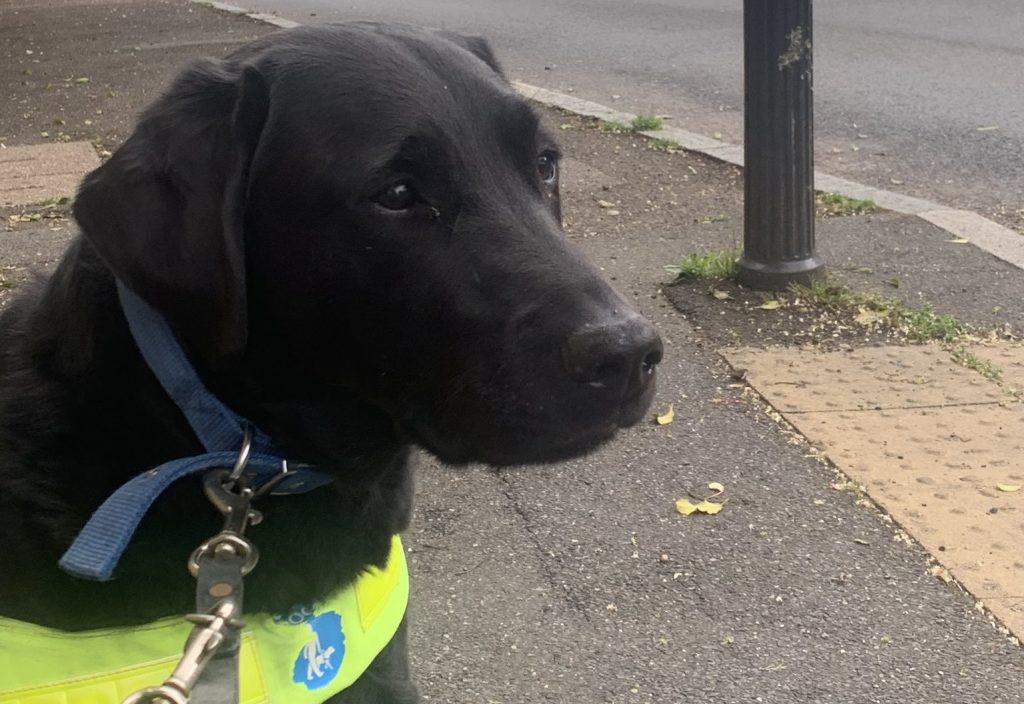
We’re living in a time of protest and that has always been at the heart of Pride. How are you relating to that right now?
I’ve been trying to read as much as I can about George Floyd, the protests, and what’s led us to this point. It’s crucial to recall that the Compton’s Cafeteria Riot in ’66 and the Stonewall Riots in ’69 were powerful protest movements led by black queer people and black trans people that had just had enough. What I’d really like the LGBT+ community to take away at this moment is that we’ve got our own battles, yes, but we must stand in solidarity with other minorities. Equality cannot be at the expense of each other.
I see it here in the London borough where I live – police stop and search all the time, and it’s black people who they’re stopping and searching. I’ve never been stopped. There’s an enormous sense of injustice and anger that I feel, and I’m white, male and privileged, so it’s hard to understand the effect on black people who are experiencing structural racism. We hear lots of white people opining all the time so let’s make sure we’re supporting black, Asian and minority ethnic people more in making and articulating their statements, and doing whatever we can to amplify those voices.
A separate issue that has me absolutely raging at the moment is the NHS blood ban on sexually active queer men (UK Department of Health guidelines state they are ineligible to give blood unless they have been celibate for three months). We’ve all just been locked in for three months, and therefore for those who haven’t had sex with another man, they’re now eligible to give blood. There’s no real science behind the ban anymore – we’ve got PrEP and advances in testing, so in effect this is legacy discrimination that’s legitimised by the NHS. NHS Blood and Transplant have been under pressure on this for years, since the time I was at university and that’s over 25 years ago. You just sit there in 2020 and think it’s appalling that we’re even having this conversation.
It does feel like Pride this year isn’t centered as much on celebrating, but what do you give thanks for?
I’m lucky in that my partner Owain and I have now been together for seven years – we just had our anniversary in lockdown. Having a supportive partner is great in itself but Owain has not only supported me through my journey as an athlete – spending 120 days a year on snow, and away – but he’s also just rolled with the punches in terms of having a partner that has a disability. That can be hard work and at some points along the way, he’s had a caring role. I’m grateful for having such an amazing partner in Owain.
What would be your Pride anthem and why?
I’m going to show my age a little bit now! One of my favourite songs ever is ‘Oh L’amour’ by Erasure, which is just an epic song. That whole 80s era is full of LGBT+ classics, like ‘Tainted Love’ by Soft Cell which is another favourite but also songs like ‘It’s Raining Men’ too!
I was writing something on social media the other day and thinking about gay role models of my generation. Essentially, they were either from music – Marc Almond, Boy George, Pet Shop Boys – or you had Michael Cashman, Peter Tatchell, and Sir Ian McKellen. And that was pretty much it! I can remember watching EastEnders with Michael Cashman as Colin and his boyfriend Barry. Inside I was so excited, but I was sitting in a room with family who were all chuntering away about how wrong it was!
I think it would be impossible to find a queer British person of our age who hasn’t been affected by the culture and attitudes of those times…
Absolutely. I was trying to explain Section 28 to someone the other day; why it was introduced and what it did. They said, ‘so that meant you couldn’t talk about LGBT+ stuff in any kind of public forum, whether that’s teaching, hospitals, etc?’ I said, no, but that there was one exception. The legislation is clear – ‘except for the purpose of treating or preventing the spread of disease’. I think that is so dark. I remember when I was at university, I was a National Officer for NUS and one of the big campaigns I worked on was repealing Section 28. It was such a mean and pernicious piece of legislation. It was structural discrimination, invented specifically to go after the LGBT+ community.
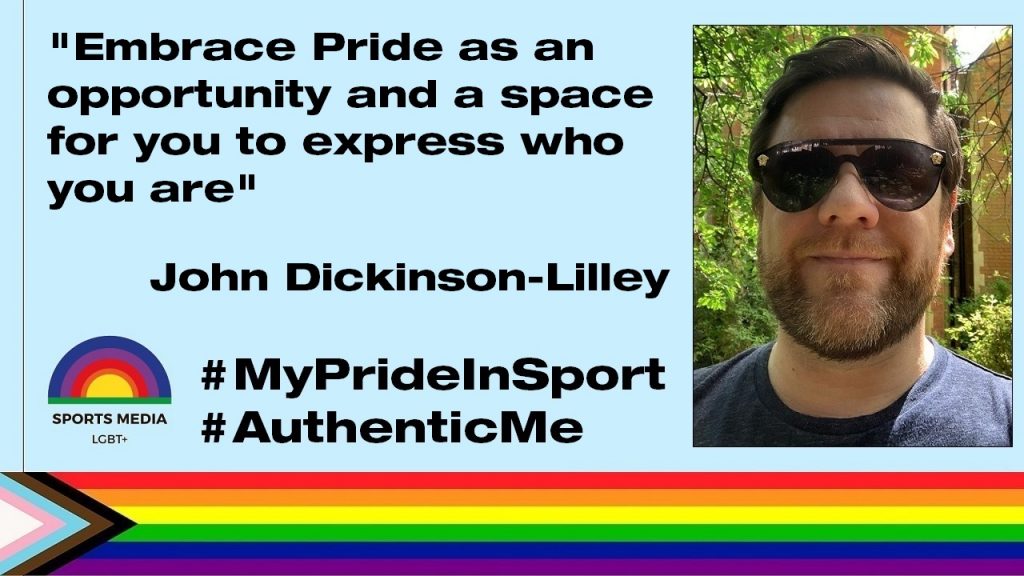
Is there an LGBT+ moment in time, or a cultural happening, that really made you proud?
The introduction of civil partnerships in 2004 was an incredible moment – the first time in my memory that LGBT+ people had been given any kind of recognition by the state. It was a big news story, and everyday people were not only talking about it but were supporting it, which really surprised me. Most of the conversations in the media at the time were very conservative and were against the Civil Partnership Act, so the debate felt really skewed. I was expecting it to be much more difficult than it was so when the legislation was passed, it was so exciting. I could genuinely see the glimpse of an inclusive future, and I remember thinking ‘what can be done next?’ It was a moment of real optimism.
When times are hard, like they are now, it’s worth recognising some of those wins and that we’ve made progress – but it’s those people that went before us who enabled that progress to happen. I think of people like Quentin Crisp, who made some very public interventions, or characters from culture like ‘Julian and Sandy’ which was deeply subversive. Then you take that all the way through to having ambassadors in political parties, on all sides of the House of Parliament who were willing and able to make the case for change. There’s a responsibility now for the next generation to think about their role in the Pride movement and to take up that torch.
Finally, what would be your message to someone who’s LGBT+ but is struggling to find their own place in Pride?
Pride isn’t a defined concept. You can embrace Pride as a space and an opportunity for you to express who you are. Wherever you sit in the entire LGBT+ spectrum, it doesn’t matter – you can be a campaigner, an advocate, or if you just want to go out and have a party, there’s a place for you to do any and all of those things. I’d say Pride is absolutely for everybody. It’s about being visible, being supportive, and saying as a community that we’re here for each other. And that’s powerful.
Thanks so much to John for this Q&A. Follow him on Instagram and Twitter at @JDLskier.
If you’ve been inspired by reading this article and would like to connect with our supportive sport and sports media community of LGBT+ people and allies, please contact us (confidence is guaranteed). You can also email Jon at jon@sportsmedialgbt.com.
Further reading…
My Pride In Sport: Michael Gunning


